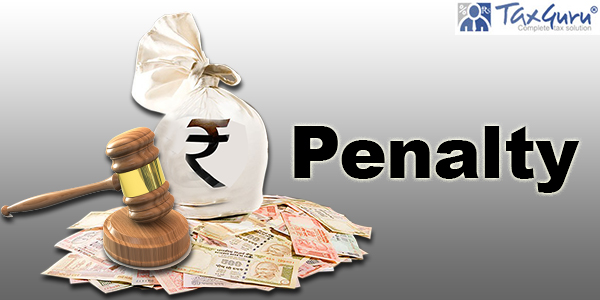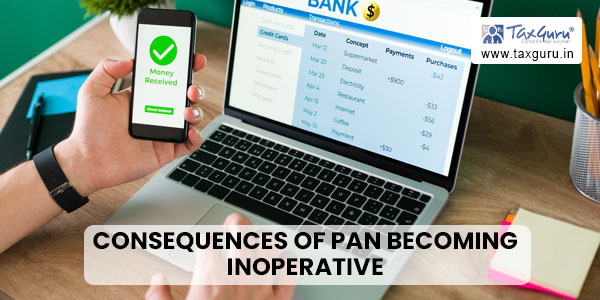TAXES AND DEATH ARE CERTAIN!
However, there are some more similarities between the both: Both are terrifying, have lots of uncertainties, both are mysterious and there are lots of confusions surrounding around the both. However, there are some distinctions between the both: death comes only once, taxes recur. Moreover, taxes have some interesting feature called set off or Input tax credit (ITC) which the later doesn’t have!
Lets try to analyse many surprises treasured in this unique feature of ITC under the GST law!
Page Contents
- 1. ITC is available only if the supplier has deposited it with the Government:
- 2. ITC is not available in respect of goods/ services used for construction of immovable property:
- 3. ITC cannot be availed once the due date of submitting GSTR 3B of September of the next financial year is over :
- 4. ITC is not available in respect of motor car:
- 5. ITC is not available in respect of food and beverages: Composite supply
1. ITC is available only if the supplier has deposited it with the Government:
Section 16(2) of the Central Goods and Services Tax Act, 2017 (CGST Act) provides that :
“Notwithstanding anything contained in this section, no registered person shall be entitled to the credit of any input tax in respect of any supply of goods or services or both to him unless,––
…… (c) subject to the provisions of section 41, the tax charged in respect of such supply has been actually paid to the Government, either in cash or through utilisation of input tax credit admissible in respect of the said supply; ….”
Therefore, it appears that unless the supplier has paid taxes (collected from the recipient) to the Government, recipient will not be eligible to claim set off in respect of the same.
A question which crops up over here is- how come default ( non payment of taxes) by the supplier can result into punishment (non availability of credit ) in the hands of recipient who is innocent?
Hon’ble Mumbai High Court while discussing a similar matter under Maharashtra Value Added Tax Act, 2012 (MVAT Act) upheld a similar provision of MVAT Act in the case of Mahalaxmi Cotton Ginning Pressing and Oil Industries v. The State of Maharashtra (2012) 51 VST 1 (Bom.). In this case, Mumbai High Court held that, no Input Tax Credit claim shall be allowed unless the corresponding tax is paid by the selling dealer into the Government treasury. As per this verdict, the poor buyer had to suffer because of the faults of the supplier.
However, it is interesting to note that in a similar matter, Hon’ble Delhi High court in the case of Arise India Limited and Ors. vs. Commissioner of Trade and Taxes, Delhi and Ors. (26.10.2017 – DELHI HC) : MANU/DE/3361/2017 took a different view altogether. While interpreting ITC provisions of Delhi VAT Act (which are in line with Maharashtra VAT, denying credit in the hands of the purchasing dealer if the selling dealer does not deposit tax with the government) Delhi High Court held that “…there was need to restrict the denial of ITC only to the selling dealers who had failed to deposit the tax collected by them and not punish bona fide purchasing dealers. The latter cannot be expected to do the impossible. It is trite that a law that is not capable of honest compliance will fail in achieving its objective. If it seeks to visit disobedience with disproportionate consequences to a bona fide purchasing dealer, it will become vulnerable to invalidation on the touchstone of Article 14 of the Constitution.’ Moreover, Departmental special leave petition no. 36750/2017 against the above order was also dismissed by the honourable Supreme Court upholding the order of Delhi High Court.
In the light of the above order of the Apex court , there appears to be a serious challenge against the validity of condition imposed by Section 16 (2) ibid. One can infer that provisions of Delhi VAT were not substantially different from those of CGST Act and therefore, the ratio laid down by Delhi High Court as well as Supreme court is equally applicable to the GST provisions. And, therefore, the bona fide recipient who has purchased goods/services on a valid invoice and who has genuinely made payment to the supplier along with due taxes, must be able to claim credit even if the supplier defaults in his duties and does not deposit tax (collected from the recipient) in the Government treasury.
The same principle was also followed by CENVAT Credit provisions in the previous central indirect taxes regime.
2. ITC is not available in respect of goods/ services used for construction of immovable property:
Section 17(5) of the CGST Act provides that:
“Notwithstanding anything contained in sub-section (1) of section 16 and subsection (1) of section 18, input tax credit shall not be available in respect of the following, namely:-
… (d) goods or services or both received by a taxable person for construction of an immovable property (other than plant or machinery) on his own account including when such goods or services or both are used in the course or furtherance of business.”
As per the above mentioned provision, it appears that ITC shall not be available in respect of goods/ services used for construction of immovable property.
Orissa High Court examined the validity of this provision in the case of a property which was let out after being constructed. The department was denying the eligibility of ITC on the ground that the immovable property is constructed by the assessee on his own account. While deciding the matter in favour of the assessee, Honourable Orissa High Court in the case of Safari Retreats Pvt. Ltd. Manu/OR/0322/2019 dated 17.04.2019 observed that
“If the benefit of taking credit of input tax under Section 16 of the CGST Act and OGST Act is denied to the petitioner No. 1 by invoking Section 17(5)(d) of the CGST Act and OGST Act, in that event, the very object of enacting CGST Act and OGST Act for reducing the cascading effect of various indirect taxes and reduction of multiplicity of indirect taxes, will be frustrated even when the business of the petitioner No. 1 is a continuous one and there is no break at any point of time. It is a well settled law that the interpretation which defeat the very intention of the legislature should be avoided and that interpretation which advances the legislative intent will have to be accepted.”
In other words, when the immovable property is constructed with an intention to let out, the benefit of ITC can not be denied. The principle laid down by Orissa high court can also be applied to various situations where the immovable properties are used for outward supply such as : Hotels, Theatres, Commercial complexes, etc.
3. ITC cannot be availed once the due date of submitting GSTR 3B of September of the next financial year is over :
Time limit for availing ITC:
As per section 16(4), ITC can be availed,
Latest by:
- Due date of furnishing of the return under section 39 for the month of September of the next financial year or
- Furnishing of the relevant annual return
Say as on 1st August, 2019, For F..Y. 2017-18, due date for filing GSTR 3B for September 2018 is over, however, GSTR 9 – annual return is yet to be filed. Can one claim credit on 1st August, 2019 in respect of FY 2017-18? Now, the question which arises is: WHAT IS A RETURN? – Can GSTR-3B be termed as a return? If no, then one can claim credit even on 1st August, 2019!
Hon’ble Gujarat High Court in the case of AAP & Company Chartered Accountants V/s Union of India observed that form GSTR-3 was supposed to be filed as a return. However, considering technical glitches in the GSTN portal it was decided to keep filing of GSTR-2 and GSTR-3 in abeyance. In order to ease the burden, it was decided to allow filing of a shorter return in Form GSTR-3B for initial period. The Court finally held that GSTR 3B was not introduced as a return in lieu of GSTR-3, therefore, GSTR 3B can not be termed as a return.
As a fallout of this judgement of Gujarat High Court, one may claim ITC even after the due date of GSTR 3B of September of a subsequent financial year. Because the same is not a return at all. The Return for any month is GSTR 3 only for which no due date has come at all! In other words, ITC can be claimed at any time till the date of actual filing of annual return!
4. ITC is not available in respect of motor car:
As per Section 17(5)(a), ITC is not available on motor vehicles (having seating capacity not more than 13 persons including driver) except when it is used for further supply of such motor vehicles.
However, there is no time limit prescribed in the Act for making further supply of motor vehicle. Therefore, the question is- can one claim credit in respect of a motor car which he is going to sell ultimately some time in future?
While deciding the advance ruling application of M/s. Chowgule Industries Private Limited, Advance Ruling Authority of Goa dated 26.03.2019, held that there is no time limit prescribed under the law to make the further supply of car to be eligible for credit and therefore, while deciding on the eligibility of ITC on a motor car which is to be sold after being used as a demo car for some period, answered in affirmative.
In other words, the car which is to be supplied in future (which in most of the cases would be) would become eligible for ITC!
5. ITC is not available in respect of food and beverages: Composite supply
As per Section 17(5)(b) (i), ITC is not available in respect of food and beverages. Therefore, many people believe that if there is something in nature of food and beverage- simply no ITC at all.
However, it may be interesting to note that proviso to the same provision i.e. 17(5)(b)(i) provides that ITC can be claimed in respect of food and beverages if inward supply of such goods or services or both is used by a registered person for making an outward taxable supply of the same category of goods or services or both or as an element of a taxable composite or mixed supply.
For example, if a person conducts a seminar during which he also provides snacks or food or beverages, he can claim ITC in respect of GST paid on such food and beverages.
There are many such interesting tax confusions within a single sub topic of “Input tax Credit”. More you read judicial pronouncements relating to this topic, more you explore!
Finally, who says that life of a Chartered Accountant or a tax practitioner is boring? There are so many interesting situations that he comes across during his day to day practice!
Though, taxes and death are certain, with so many interesting confusions finally we can say- LIFE IS INTERESTING!
CA. Jayesh Gogri, Director GST Intime Services Pvt. Ltd.
(The author of “My GST E-book” www.thebooklounge.in)




















your comments and the articles would clarify many CA and Tax practitioners and would also help many Assessee
Thank you sir for sharing such an informative article.
Very interesting and informative
Pls sir I ask you most important question for income tax audit 2019 date extend how many chance for date extend
Impromptu
“…………And, therefore, the bona fide recipient who has purchased goods/services on a valid invoice and who has genuinely made payment to the supplier along with due taxes, must be able to claim credit even if the supplier defaults in his duties and does not deposit tax (collected from the recipient) in the Government treasury.”
The stated proposition is of greater relevance and merits particularly in respect of GST levied on ‘promoters of construction contracts’ , of housing complexes pending completion. Such a levy is being imposed on the promoter by invoking the peculiar concept of “deemed works contract”. According to the GST council decision lately taken and since been given effect through a Govt. Notification, by way of simplification, two rates of levy have been made applicable- either the old rate of 12% with ITC or 5% with No ITC. In a case in which a promoter , for whatever be the reason, is in no position to pass on the ITC benefit to its buyer (the ‘recipient’) , – for no fault of the buyer- it must necessarily follow that it is only the lower rate of 5% that should apply, and be collected .
For thoughts and viewpoints stoutly canvassing for acceptance of the stated preposition, look through the earlier Posts on this website, besides elsewhere available in public domain.
courtesy
You have not seen another controversial provision in section 16(2) clause d para 3rd para in which it is mandatory to make the payment of input / input service with in 180 days from the date of invoice to get the ITC which means you have to pay to suppliers even by getting loan from any where to get the credit. If the interest rate is 10% and GST rate is 12 % then also it is wise to make the payment . Failure to make payment caused you to reverse the ITC taken with interest. And recipient shall be entitled to avail the credit of inputs on payment made by him of the amount towards the value of supply of goods or services or both along with tax payable thereof. So reversed amount will be re reversed on making payment but the question is whether this credit will be allowed after payment and after expiry of filing GSTR3B or Annual return which ever is earlier as per subsection 4 of section 16 of CGST Act 2017.
Excellent!
It was Great comprehensive reading of your post.
While I agree with interpretation and understanding of author, it is in the interest of the assessee to deal with Vendors, who are GST compliant. Having collected GST from the assessee, why should not the Vendor deposit the GST collected with Government ? Assessee should fight their battles not the battles of delinquent Vendors….
Excellent article. Can there be denial of ITC for defective invoice raised on buyer?
Sir,
I have availed ITC, against renovation expenses of my building which has been rented out to a multi specialty Health care company.
Is it not right to avail input or not kindly give me a clarification.
Regards